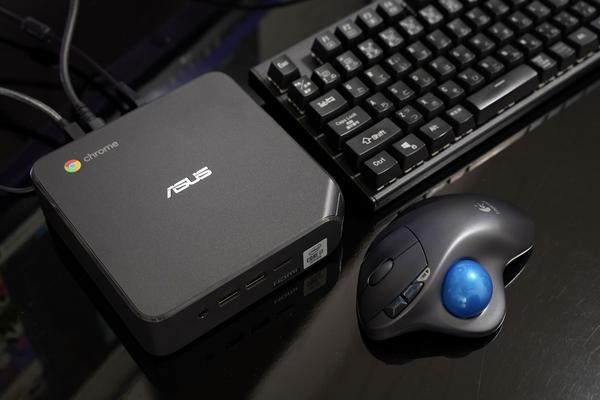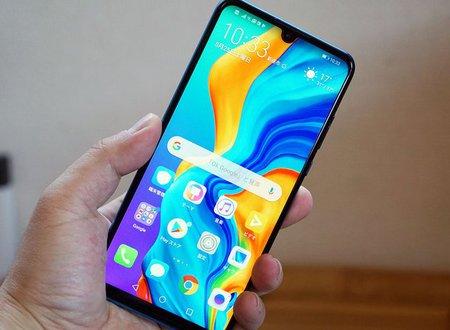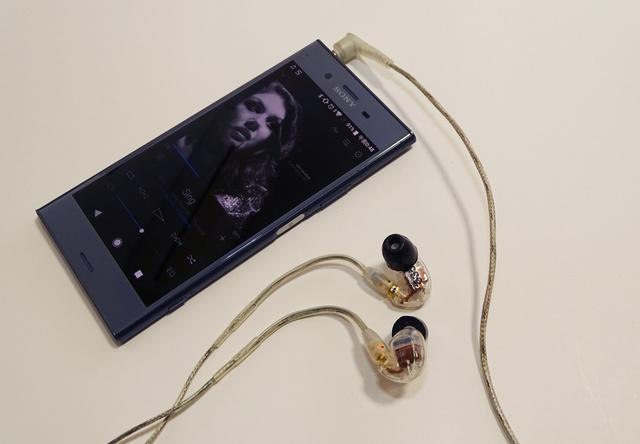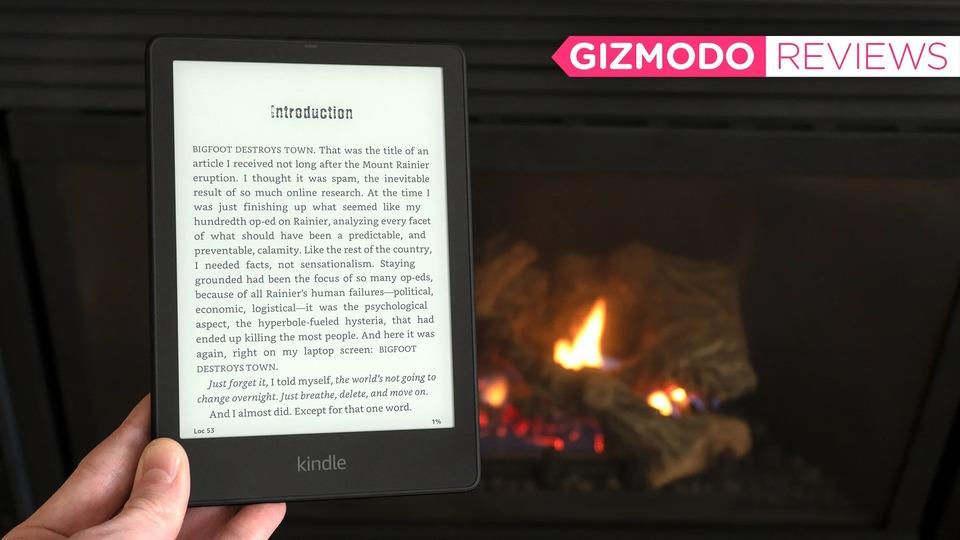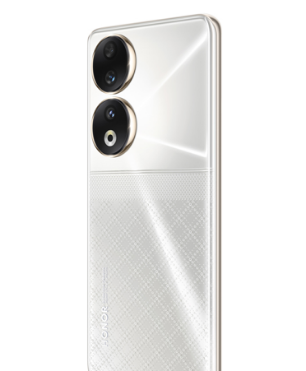I didn't have to worry about carrying it around.
In order to meet various needs, PCs have changed their forms according to how people use them. laptop, 2in1, desktop. Each has its own merits, and I think that all of the devices are playing an active role in the right place.
And one of this diversity is the Chromebox.
Chromebooks are already a major device, so you might be like, "Oh, it's a laptop with Google's ChromOS," but what about "Chromeboxes?" It is also a mini PC with ChromeOS. It's a desktop machine without the monitor and keyboard from Chromboook.
But why bother with a desktop operating system for laptops?
Yes. It's strange! That's what got me interested. What is the reason for installing ChromeOS, which has low required specifications, energy saving, and lightness of footwork as a weapon, in a desktop type that can not be carried around? how is the usability? This time, I borrowed ASUS's "ASUS Chromebox 4" and used it.
From the conclusion, if you don't carry it outside, I think you can put it in your options.
ASUS Chromebox 4 (CHROMEBOX4-G7021UN)
What is this? : Mini PC with ChromeOS
Price: 41,220 yen (Celeron model) to 85,320 yen (Core i7 model)
What I like: Highly scalable with support for 4K output
What I don't like: Cost performance is not good
Extensive expandability, a rich ChromeOS experience with your favorite monitor
"ASUS Chromebox 4" is the 4th generation, as the name 4 indicates. I just don't know, but there's actually been a ChromeOS desktop genre for quite some time.
Such "ASUS Chromebox 4" has four models with different specifications. From the entry-level Celeron 5205U to models with Core i3, i5, and i7. The model used this time is "CHROMEBOX4-G7021UN", which is the highest Core i7 model. Specifically, the specifications are as follows.
CPU: 10th Generation Intel Core i7-10510U Memory: DDR4-2666 16GB Graphics: Intel UHD Graphics Storage: 256GB (M.2 PCIE GEN3x4 SSD) Video Output: HDMI 2.0 x 2, USB 3.2 Gen1 type-C (DisplayPort 1.4) x 1USB port: USB 3.2 Gen 1 Type-C x 1 (back x 1, also used as video output), USB 3.2 Gen 2 x 5 (front x 2, back x 3)
Yeah, it's a lot.
Does ChromeOS really need these specs? I will talk about it later, but the first thing I want you to pay attention to is its high extensibility.
USB-A x 2 (3.2 Gen1 x 2), earphone jack, and microSD card reader on the front.
From the left, the back has a LAN port, USB-A (3.2 Gen1 x 3), HDMI x 2, and USB-C. Although it is a mini PC, it has the feeling of being able to "stick with anything" that is unique to the desktop type.
Of course, since this is a desktop, you will need to connect a monitor, keyboard, and mouse. This seems like a disadvantage compared to a laptop, but when you actually use it, you can choose your favorite monitor, keyboard, and mouse.
When I work long hours looking at a small monitor on my laptop, my body screams and my concentration plummets. But the comfort level was above. ChromeOS is comfortable to operate connected to a 32-inch 4K monitor.
Unlike a laptop, it doesn't have the advantage of being "everywhere", but there's always Wi-Fi at home, so there's less time loss before you can start using it than carrying it outside and using tethering. Good point.
ChromeOS is super fast on Core i7
Oh no. Core i7!? It's a waste to run it on ChromeOS!
You may hear a lot of tsukkomi, yes. I thought so too. But this time, I really wanted to borrow the top model. Roughly speaking, I was frustrated with the specs of the Chromebook "ASUS Chromebook Detachable CM3" I bought before.
I Was Wrong About Chromebooks: ASUS Chromebook Detachable CM3 Review

Oh, you were such a child! "ASUS Chromebook Detachab...
https://www.gizmodo.jp/2021/05/asus-chromebook-detachable-cm3-review.html
However, this was my first experience with ChromeOS, so I didn't know if the stress of using it for business was due to ChromeOS, or if it was due to the low specs. So, this time, I decided to "ask for the best" and chose the Core i7 model.
... So, I tried using ChromeOS on Core i7, but it was still insanely crisp.
The loading speed of the storage is fast, and the web page is rendered in an instant.
Connected to a 32-inch 4K monitor, the screen is spacious, and you can afford to output two screens to the sub display. You can arrange many windows on a spacious desktop and run multiple apps and services at the same time to get your tasks done. The apps and services I use are different, but I was able to reproduce the efficient way of working on the Mac mini that I normally use.
But is it because this is an i7 model? The answer is probably no.
As expected, Sasugar x n! Core i7 is overspec for ChromeOS. Considering the minimum required specs of ChromeOS, I think you can get the same experience with the Core i3 model. In the first place, I don't think there are any services or apps that require Core i7 specs on ChromeOS. From Core i3 onwards, it really feels like Kodawari's territory.
Thus, the operation is comfortable, but there were some things that bothered me. First, the display scaling could change on wake from sleep. It seems that there is some compatibility with the monitor in a multi-display environment.
As a critical compatibility issue in the modern scene, it didn't recognize the handheld webcam... After looking into it, it seems that there is also a web camera compatible with ChromeOS, so it seems necessary to purchase that one. It was a big shock because I thought that I could use a web camera with Win or Mac.
It seems that choosing Windows or Mac, which has a track record in various environments, will cause less trouble when it comes to compatibility with external devices.
When you look at it as a desktop PC, the simplicity of the OS becomes a pity
In my view, Chromebooks are ``a hardware experience that allows you to retrieve Google services regardless of the device, scene, or location.'' It is what was done. Chromebox adds elements such as scalability and efficiency to it, so the Google experience was one layer higher.
However, running ChromeOS on a desktop PC this time has changed my perception. The ChromeOS UI is simple and intuitive. It gives the impression that it's a good combination of a PC and a tablet, but I felt a little unsatisfactory because the screen became larger and the touch operation was lost.
The UI of the window is exquisitely shrunk so that it can be used comfortably even with touch operations. But if you try to use it like a PC...
・I don't like specifications where files and folders can't be placed on a vast desktop.
・I want to manage files with tags and labels!
・ Isn't the amount of information on the setting screen too small?
・Isn't there an Android application that can't open files by dragging and dropping?
・I want to use the app with the same menu UI as the PC!
Oh my God. Because it has become rich, I feel unsatisfactory in the manner of ChromeOS and the simplicity of the UI. Humans are such sinful creatures...
However, this is an opinion from a user familiar with Windows and Mac. People who are accustomed to using smartphones and tablets on a regular basis may feel positively that "the same experience has become more comfortable!" I think it's a part that strongly influences what kind of device you usually use.
Who is Chromebox for?
Finally Chromebooks and Chromeboxes. Which one do you prefer? Let's explore
I want to use ChromeOS first! Assuming that there is such a desire as a major premise, I think that if you are in an environment where you already have your favorite environment such as a monitor, keyboard, and mouse, and you want to replace or purchase more, you can choose Chromebox.
If you choose a Chromebook and don't move it from your desk, it's just a device with a small screen. If you have a place (desk) where you can work comfortably without having to carry it around, a Chromebox will be more comfortable because it is based on the hardware of your choice. If you buy a Chromebook with the minimum necessary configuration just by looking at the cost, I think that choosing a Chromebox with a certain amount of specs and expandability will bring back a better ChromeOS experience.
Another good point is that the operating parts are separate, so it's easier to maintain than a laptop that can't be used if one of them breaks. This high level of maintainability is an advantage for offices, educational institutions, and public institutions, but I think it's also possible for consumers to create a simple, minimal PC environment based on ChromeOS in their favorite environment. .
However, due to the characteristics of ChromeOS, you will be working mainly on web services and Android applications, so please be careful about that. If you want to "do anything", choose a mini PC with Windows 10 or a Mac mini.
・The scalability that can be fixed in your favorite hardware environment is good.
・The use of ChromeOS on the desktop was comfortable.
・The i7 model is overkill. Maybe a Core i3 will suffice.
・It's good if you can complete your work and what you want to do with Google services.
・The Android app runs, but the horse (Uma Musume) does not run (cannot be started).

